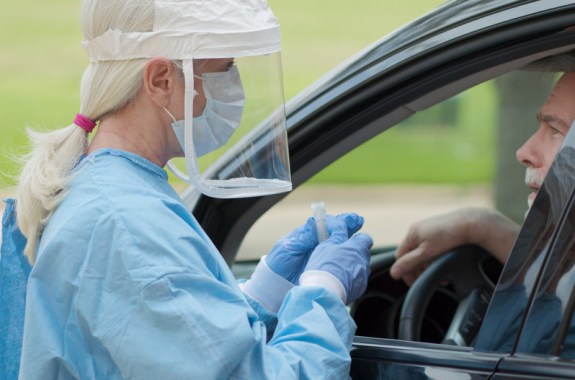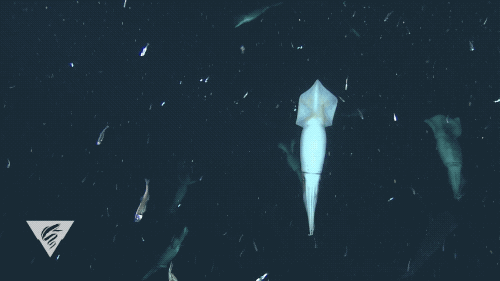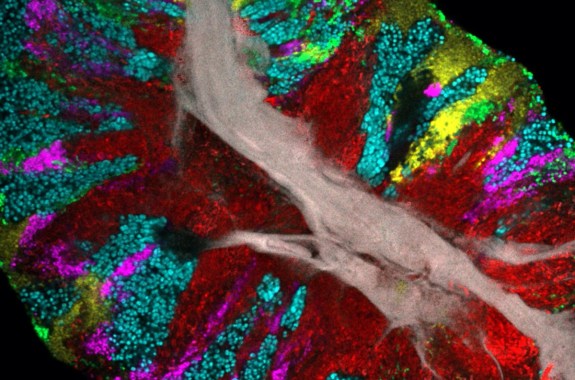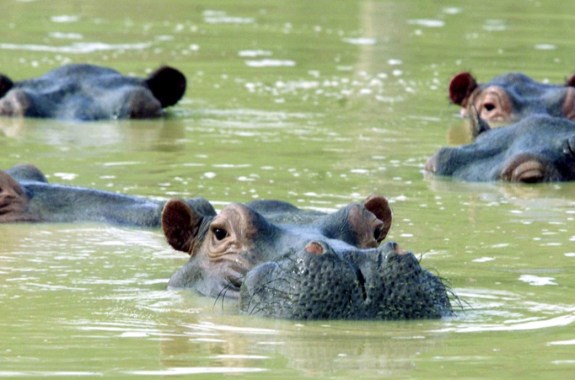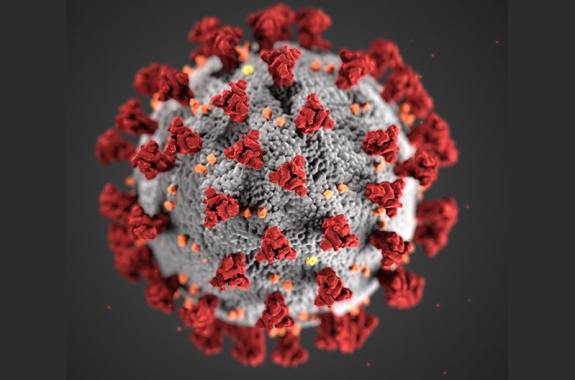Award winning science correspondent and TV journalist Ira Flatow is the host of Science Friday, heard on public radio stations across the country and distributed by WNYC Studios. He anchors the show each Friday, bringing radio and Internet listeners worldwide a lively, informative discussion on science, technology, health, space, and the environment. Ira is also founder and president of the Science Friday Initiative, a 501 (c)(3) non-profit company dedicated to creating radio, TV, and Internet projects that make science “user-friendly.”
Flatow’s interest in things scientific began in boyhood—he almost burned down his mother’s bathroom trying to recreate a biology class experiment. “I was the proverbial kid who spent hours in the basement experimenting with electronic gizmos, and then entering them in high school science fairs,” Flatow says. Mixing his passion for science with a tendency toward being a bit of a ham, Flatow describes his work as the challenge “to make science and technology a topic for discussion around the dinner table.”
He has shared that enthusiasm with public radio listeners for more than 35 years. As a reporter and then news director at WBFO-FM/Buffalo, New York, Flatow began reporting at the station while studying for his engineering degree at State University of New York in Buffalo. As NPR’s science correspondent from 1971 to 1986, Flatow found himself reporting from the Kennedy Space Center, Three Mile Island, Antarctica, and the South Pole. In one memorable NPR report, Flatow took former All Things Considered host Susan Stamberg into a closet to crunch Wint-O-Green Lifesavers, proving they spark in the dark.
His most recent book is entitled Present At The Future: From Evolution to Nanotechnology, Candid and Controversial Conversations On Science and Nature (HarperCollins).
On television, Flatow has discussed the latest cutting edge science stories on a variety of programs. He also hosted the four-part PBS series Big Ideas, produced by WNET in New York. His numerous TV credits include six years as host and writer for the Emmy award-winning Newton’s Apple on PBS, science reporter for CBS This Morning, and cable’s CNBC. He wrote, produced, and hosted Transistorized!, an hour-long documentary about the history of the transistor, which aired on PBS. He has talked science on many TV talk shows including Merv Griffin, Today, Charlie Rose, and Oprah. He has co-starred twice on the CBS hit series The Big Bang Theory.
On the Internet, Flatow has hosted numerous science-related web casts for Discovery Online, The Great Planet Debate, and the American Museum of Natural History in New York.
In print, Ira has authored articles for various magazines ranging from Woman’s Day to ESPN Magazine to American Lawyer. His commentary has appeared in The Los Angeles Times, and Current newspapers. Public speaking and moderating discussions are a regular part of his schedule. He has spoken at Rockefeller University, the World Economic Forum, Sun Microsystems, Hewlett Packard, Calvin Academy, Cal Tech, MIT, Harvard, University of Wisconsin, OSHU, National Inventor’s Hall of Fame, and the Kentucky Author Forum. In 2004, Ira was resident scholar at Woods Hole Oceanographic Institute. His recent honors include: the Isaac Asimov Award (2012,) the Nierenberg Prize (2010), Connecticut Academy of Science and Engineering, membership (2008), National Science Teachers Association Faraday Science Communicator Award (2007), the National Science Board Public Service Award (2005), World Economic Forum Media Fellowship (2005), AAAS Journalism award (2000), Brady Washburn Award (2000), and the Carl Sagan Award (1999). Ira is member of the National Association of Science Writers, AFTRA, and Screen Actors Guild. His hobbies include tennis, golf, gardening (especially orchids), and electronic gadgets. He loves the theater. A native of New York, Flatow now lives in Connecticut.
16:55
Cooped Up At Home? Try These Citizen Science Projects
Explore the universe, your town’s water quality, or the nature in your backyard—while staying home.
17:28
With Low Supplies, DIY Medical Gear Is On The Rise
Due to shortages of crucial supplies, healthcare workers ask volunteers to make medical masks.
11:15
Why Do We Still Not Have Enough COVID-19 Tests?
The new reason for the U.S.’s testing backlog? Materials like swabs, chemical reagents, and lab shortages are causing delays.
16:21
Citizen Scientists: Submit Your COVID-19 Symptoms (Or Lack Of Them)
How citizen scientists can help the CDC track the spread of coronavirus in the United States.
11:38
How Humboldt Squid Talk To Each Other In The Dark
In the deep ocean, these cephalopods use a combination of skin color patterns and bioluminescence to communicate to one another.
17:14
Mapping The Microbiome Of Your Tongue
Researchers are trying to understand the relationships between the communities inside “microbial skyscrapers” on the human mouth.
15:25
Rethinking Invasive Species With Pablo Escobar’s Hippos
Colombia’s non-native hippo population is ballooning. New research says that might not be a bad thing.
16:59
Fact Check My Feed: Which COVID-19 Treatments Are Backed By Science?
Virologist Angela Rasmussen returns to explain the studies behind the stories on your news feed.
6:44
What Does A ‘Pandemic’ Actually Mean?
What the World Health Organization’s declaration of a ‘pandemic’ means, and more from the week in science.
5:04
Is A New HIV-Prevention Drug Worth The Extra Cost?
With affordable generic PrEP drugs on the horizon, a new brand-name PrEP rollout complicates access to underserved communities.


